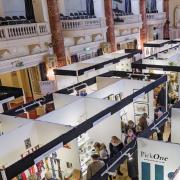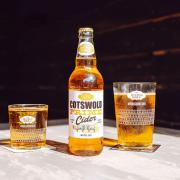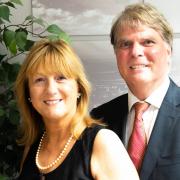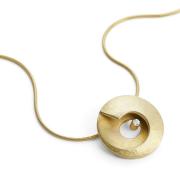Avon Metals Ltd, and its subsidiary Avon Specialty Metals Ltd, in Gloucester specialise in recycling some of the world’s most exotic metals, but you probably won’t have heard of many of them. Steven Munnoch, Avon Metals CEO, explains

Tantalum, niobium, molybdenum, tungsten and rhenium: Some of the world’s rarest metals you won’t find in a jeweller’s window. They’re hidden away in smart phones, laptops, MRI scanners, automotive catalysts; even CERN’s Large Hadron Collider.
Known collectively as ‘minor metals’, they refer to metals not traded on any formal exchange and form part of the core product range of Avon Speciality Metals, established just under three years ago as a subsidiary of Gloucester-based Avon Metals, of which more later.
When a phone reaches its end of life and electronic equipment is no longer fit for purpose, the metals are recycled into other useful alloys to use in the manufacture of a wide range of products including the latest blades in jet engines and land-based gas turbines.
A good thing too as these metals are extremely expensive. Commodity prices rise and fall, but tantalum currently commands around $280 per kg (a few years ago it was $500 per kg).
Avon Metals CEO Steven Munnoch established Avon Speciality Metals after recognising how good his team had become in trading and processing exotic metals. “It made sense to separate the smelter from the trading so we had clarity on which parts of the business were contributing to our overheads.”
Be under no illusion that this is an easy business. It’s necessarily mired in red tape. Minor metals are verging on precious and with several of them mined in African war zones, there is an ever-present threat of them being sold, like blood diamonds, to finance warfare. Companies such as Hewlett Packard, Intel and Apple cannot afford to have their reputations damaged by any such association, so all US companies of a certain size must submit a report to the US Securities and Exchange Commission detailing where they bought their metals from and confirming they are ‘conflict-free’.
Where companies can buy recycled metals therefore, they will, because the more you recycle, the less is dug out of the ground. The only problem for suppliers such as Avon Specialty Metals is that the amount of reporting at EU and global levels keeps rising and there is a cost associated with compliance. Steven is pragmatic. “Regulations are onerous, but they are an opportunity as well. If everyone has to comply, it’s a case of getting in there to tackle them early.”
The chances of Avon Specialty Metals getting any tantalum scrap from Africa is remote because the continent doesn’t process its raw ore material, exporting it instead. “We recycle scrap tantalum from a whole range of industrial sources. Our specialist equipment can recycle it back into pure tantalum metal where it eventually ends up as an addition of around 3-6% into nickel alloys for turbine blades,” says Steven. “Our product competes with primary material on a cost basis and satisfies the buyers SEC reporting obligations.”

As well as recycling metals in their pure form, Avon Speciality Metals reprocesses nickel and cobalt based alloys in alloyed form. The company can take in an engine run turbine blade, clean and recycle it back into melt stock to ship out and for remelting back into a perfect blade: Perfect closed-loop recycling.
Avon Metals Ltd, the parent company to Avon Specialty Metals, has been based at Bristol Road, Gloucester location since 1973 and initially started as a scrap metal business. Over the years it has added various types of furnace technology and grown into an aluminium smelting operation, currently recycling around 15,000 tonnes per annum.
Each furnace lends itself to making different alloys, unique and tailor-made to individual customer specifications. To create their alloys, Avon Metals also needs to import various other metals from all over the world, including magnesium from China, silicon metal from Australia and Spain. “We combine them with aluminium at an atomic level to make a useful alloy,” says Steven.
Most of the raw material fed through the plant is aluminium scrap, bought from a host of industrial generators and scrap metal dealers. These can include window frame extrusions, car wheels, automotive pressings, Chinese takeaway foil, even beer barrels. Aluminium recycling requires up to 95% less energy to recycle aluminium than to produce primary metal, so avoiding corresponding emissions, including greenhouse gases. Today, around 75% of the almost one billion tonnes of aluminium ever produced is still in productive use. Aluminium really is the ‘green metal’ and highly sustainable.
However, the UK’s decline in manufacturing has impacted on metal recycling companies. “There isn’t enough of the type of scrap we need in the UK,” says Steven. “So we import from South Africa, Australia and the Middle East. The scrap arrives in containers and everything we receive has to be checked for impurities and physically pre-processed before it can enter the furnace.”
Avon Metals finished product takes the form of ingots. These are sold around the world for automotive and aerospace castings as well as the production of semi-fabricated aluminium sheet, foil, plate, bar, rod and wire.
Both Avon companies import and export their raw materials and products all over the world. Exports currently stand at approximately 50% of total sales revenue for both.
An early rise to the top
Steven was born in Johannesburg, South Africa. The family first returned to their native Yorkshire, but when he was 11 years old the family moved to Gloucester for his father’s job and he attended St Peter’s Roman Catholic High School (which his oldest daughter now attends), before taking an HND in building studies at the old GlosCat College, Cheltenham.
At the time, the building industry wasn’t doing very well, and through a part-time job, Steven met some of the directors at Avon Metals. They had followed his progress through college and were keen to bring some young blood into the business as a commercial trainee buying scrap. “The managing director told me that if I did well and kept my head down, within a few years I would could be like Gordon Gekko,” (Michael Douglas’s character in the film Wall Street).
A 20-year-old looking for an exciting career is easily persuaded, but I can’t imagine this mild-mannered, intelligent man ever thumping the air yelling ‘Greed is Good’. “I spent six months working in every department and when I could do the job as well as the person training me, I was allowed to progress to the next task. I bailed incoming scrap metal, worked days and nights in the foundry, hand stacked the ingots and accompanied our drivers delivering product to UK customers.”
Steven has maintained that philosophy with new employees. “It gives you an understanding of the physicality of some of the jobs. In summer it’s pretty hot for the guys in the smelters. The furnaces get up to some very high temperatures.”
When Steven joined Avon Metals in 1998 it was part of a group of four companies including an aluminium smelter in Tamworth, a dross reclamation plant in Whitchurch and a scrap metal merchant in Preston. Known as Avon Group Holdings, two of the other group companies were underperforming and cross-guarantees meant the entire group went into administrative receivership in 2001.
Avon Metals’ saviour was Walter Reid, a London-based scrap metal and property magnate. He bought Avon Metals in record time, in a deal that included its existing directors, but over the next five years the original directors left, giving 28-year-old Steven a golden opportunity when Walter offered him the job of CEO.
He was young, but Steven knew that if he passed up the opportunity he might not get another one for 20 years. “Walter put me in charge and has pretty much left me to my own devices since them.”
A dream of a boss, Walter Reid is clearly a good judge of character too. Since Steven took over, the company has won three Queen’s Awards for International Trade and Sustainability and Gloucestershire Business of the Year in 2012, among other accolades. Avon Metals turns over £30 million a year and in less than three years Avon Speciality Metals is turning over £15 million. Steven can see a time when both businesses will be on a par.
There are 20 employees at Avon Speciality Metals and 50 at Avon Metals, including a large percentage of Polish workers. “The Polish are skilled in this industry and we try to foster a culture of a multi-talented and multi-skilled workforce. This enables flexibility and cover.”
There are also a fair amount of family and friends on the employee roster. “My partner Kate is logistics coordinator and handles imports and exports, my close friend joined us 20 years after we left college and is now our sales director and my brother-in-law oversees purchasing and trading. Generatlions of families work in the foundry and yards too. People with a personal connection tend to work harder and try not to disappoint you.”
Steven works pretty long days. “I never turn my phone off, even when I go on holiday. It would be more stressful for me to come back and deal with hundreds of unanswered emails.”



























